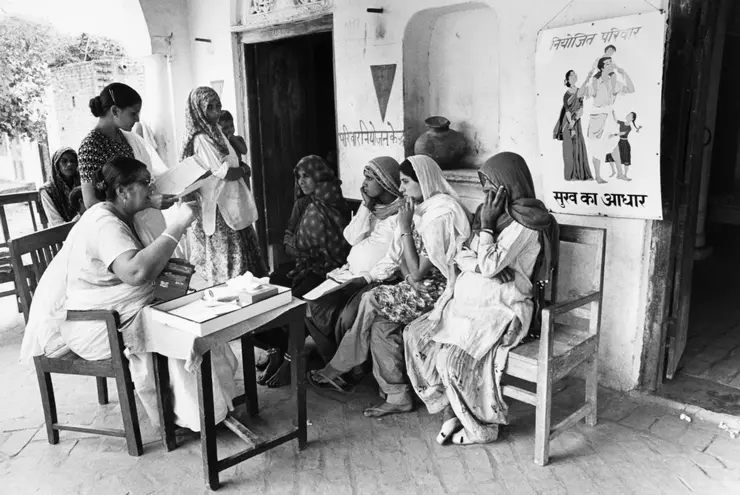
Echoing recent calls for a ‘gendering’ of development history, this project examines Indian women’s contributions to rural reconstruction programmes between the 1920s and 1960s. The project’s main objective is to explore the uncharted history of female actors’ roles in designing and implementing rural development schemes in India in three key areas, namely health, education, and sustainable livelihood. These initiatives were partly state-led, and partly carried out by voluntary organisations. Their analysis provides novel insights into international entanglements across North America, Europe, and South Asia that shaped the processes of Indian nation state building. Moving beyond the existing scholarship, which mainly focusses on male actors, the overarching goal is to produce an account of the twin processes of development and expansive citizenship by shifting the focus to elite women working with subaltern rural women. To achieve this, the fundamental questions the project raises are: did these schemes, influenced by contemporary social feminism, re-iterate the conventional dual model of male and female divided work sphere? Did this type of female work and participation re-inscribe a secondary feminised role? Or, on the contrary, did all this activity elevate women as ‘equal citizens’? The project encompasses both the late colonial and the early postcolonial periods. Such an approach, still rarely practiced in South Asian history, allows to put continuities and ruptures into stark relief. Jawaharlal Nehru’s famous quote that dams are ‘temples of the new age’ stressed the importance of large-scale investments in the state-run modernization of the industrial sector. A closer look nevertheless reveals that the rural, besides being the locus of agrarian production guaranteeing food security, was also an equally important site of ‘gendered’ development. Programmes to improve maternal and child health, to develop handicraft and cottage industries to support livelihood, and to widen the literacy base were specifically targeted towards women in rural areas. Both local participation as well as support from international organisations such as the WHO shaped the knowledge, expertise and networks of Indian activists that were key to the success of these schemes. The proposed research combines an actor-centred biographical approach with the investigation of institutional history that takes both organisations and networks into account. While retaining the focus on women’s contributions, one guiding hypothesis, based upon preliminary work, is that the ‘zone of encounter’ between elite imaginations and rural realities will tell us about the contestations that accompanied the implementation of these schemes. In this way, the project will provide an in-depth account of how women conceptualised ‘development’ for themselves, and what these contestations meant for the historical genesis and graded nature of citizenry in the world’s largest democracy.
Funding: Deutsche Forschungsgemeinschaft (DFG)
Image: INDIEN: FAMILIENPLANUNG. NUM Familienplaner Vorlesungen Frauen auf die Verwendung von Verhütungsmitteln Geräte in einem Dorf in der Nähe von Neu-Delhi, India, 1968. Source: Granger Historical Picture Archive / Alamy Stock Foto.
In February 2023, the two-day workshop "Global Networks, Local Pioneers: Gendered Perspectives on social activism, work and political engagement in and from South Asia" took place in Delhi, India. Fritzi-Marie Titzmann (RePLITO) and Maria Framke (DFG-project "Hidden Histories") organized the workshop in cooperation with the TM5 module "The Challenge of Gender" of ICAS:MP. First results of the workshop have been drafted into essays and a workshop report, accessible online at the Replito Knowledge Archive. Dr. Maria Framke grants the readers an insight into her current research with her essay:
7th European Congress on World and Global History, Den Haag, 29.06–01.07.2023
Lecture "With women into 'modernity'? Rural South Asia and the gender question" in the panel "Planning and social engineering outside the cities: Harbingers of rural vulnerability in decolonising Asia"
European Conference on South Asian Studies, Turin, 26.–29.07.2023
Panel „Changing Forms of Gendered Participation in Politico-ideological Movements in South Asia: Histories, Networks, (In)Visibilities", organised with Fritzi-Marie Titzmann, Aastha Tyagi, and Anshu Saluja